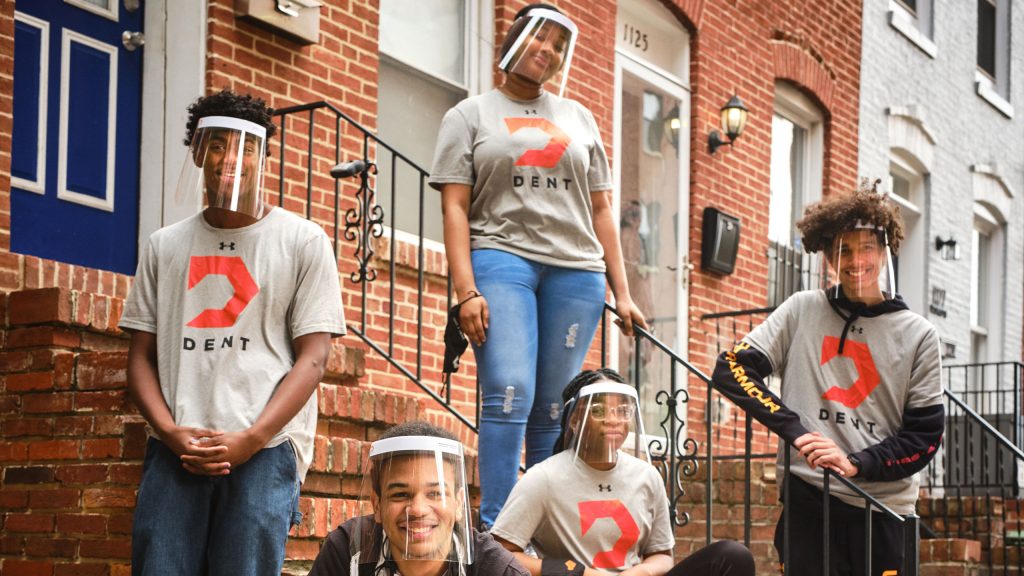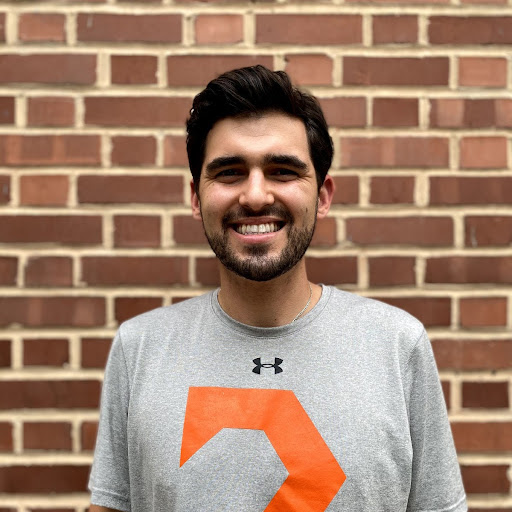
I came to Baltimore for my first job, as the first full-time employee at Dent Education, a youth-centered social enterprise empowering Baltimore youth to be social innovators, creators, and entrepreneurs. There are many ICJS Justice Leaders Fellowship (JLF) concepts that have evolved my understanding of economic justice through a religious lens and informed how I show up in my role at Dent. My most influential learnings are:
Sodomite Legal Structures Still Benefit the Rich
The story of Sodom & Gomorrah is one in which God destroys these cities for their “wickedness”. Sodomite legal structures—paired with a cultural value of rugged individualism—still thrive in the United States where wealth disparities run rampant. “The law of Sodom benefited property owners over orphans, rich over poor… The city went so far as to criminalize giving to the needy.” In the U.S., the wealthiest billionaires somehow pay 0% in taxes, yet people working two jobs and 80-hour weeks struggle to make basic ends meet.
Co-Facilitating Youth Dialogue on Capitalism
Inspired by JLF, Made@Dent Youth Co-Owners and I co-organized a structured dialogue on the impacts of capitalism. Made@Dent is a co-owned social enterprise where youth build and design custom products to meet community needs. During the pandemic, Denters made $50,000 and 35,000 face shields to protect frontline workers.
In the conversation I supported two Co-Owners in facilitating, we explored the lens Made@Dent offers into capitalist structures. Made@Dent plays within our current system of capitalism – for example, youth are both owners who revenue-share with the business and makers who build products. Yet, in experiencing their power to create change, Made@Dent Co-Owners, most of whom are Black youth harmed by capitalist beliefs and structures, are empowered to hopefully one day be in positions to dismantle capitalism’s harmful effects.
Experiencing the Divine through Work
While I am Jewish, I did not previously know the Jewish concept of “work as dignity.” However, I am fortunate to experience its benefits—the next-level joy and pride that comes from a meaningful, passion-filled career.
Where does this concept originate? At the beginning.
The Torah starts with the story of creation. This Genesis—to me, symbolic of our universe’s billions of years of evolution—are six days where God worked to create the world and a 7th, Shabbat, where he rested.
That God spends over 80 percent of the week working connotes a special significance to work. Work is the daily motor that propels life before our special day of rest. The practice of Shabbat, one of Judaism’s great gifts to the Jewish people, promotes self-care, quality time with loved ones, and spiritual growth. In Judaism, Work + Shabbat = a divine, meaningful life.
Even the Hebrew words for work bear special meaning. “Avodah” means “worship” in the sense of “service,” and “eved,” translated as “servant,” references our service to God when we act on mitzvot—good deeds.
This teaching gave me renewed focus on the importance of how Dent runs our programs—paid summer internships and economically empowering experiences where youth learn and earn. As a non-profit, we align with the teaching of Jewish scholar Maimonides, who said that the highest form of “charity” is to economically empower someone with a loan or a job.
In Dent’s programs, Baltimore City high school students have an “I Can” experience as they learn 21st century skills like 3D printing, music production, and graphic design and apply equity-centered design thinking to launch their own ventures, create art, or aim to solve community problems.
While Denters have earned over $400,000 at Dent—through YouthWorks, our Made@Dent operation, and profits from their ventures—our programs could just operate in ways that increase youth creativity and innovation without economic empowerment. Our mission at Dent is to promote equity by empowering under-resourced youth to discover and develop their innate creative potential to shape the world around them. In theory, aiming to achieve that mission does not have to achieve economic justice.
Dent could just run awesome after-school and summer programs where youth learn skills, launch businesses, and connect with community. Other non-profits like Philanthropy Tank—which invests up to $15,000 in youth ventures, or NFTE, a nationwide network training teachers to teach entrepreneurial mindsets—do not pay youth.
So why do we pay our youth?
Before JLF, my answer would have been that economic empowerment is the only way for us to equitably run Dent. Our long-term goal at Dent is for our youth to live with agency and achieve upward mobility, for which economic empowerment is crucial. Furthermore, when our programs didn’t pay youth, some left Dent to take jobs at Burger King. If we don’t pay youth, they often cannot access our programs.
However, through JLF, I now envision paying youth at Dent as more than just a means to an end. Doing their jobs can be divine acts directly connected to our youth’s sense of self-worth and dignity.
Work is essential for our young people and the fact that Dent is a job for them—not just an extracurricular activity—provides an avenue to a sense of divine work and meaning often unattainable in school or menial jobs.
Furthermore, paying youth distinguishes us from other comparable programs. We can hold the expectations of a job—pride in your work, feedback, engaged participation, and driving towards growth and goals.
Working at Dent offers dignified work sometimes inaccessible to high schoolers. Unlike most work environments, Dent is known as a family to our youth. It is a supportive, challenging culture in which youth can bring their full selves, embrace the learning that comes with failure, gain mentors who are adult innovators and educators, practice Dent Mindsets key to finding success and joy in our rapidly changing world, and learn skills that will differentiate them in the 21st century job market.
It is beautiful that youth at Dent, like myself as a young professional, get to experience work that offers purpose. As Wendell, a first time Denter, said, “This summer has been amazing. I never thought my first job would connect me to so many people, push me to learn new skills and try new things, all while changing my mindset.”
For the majority of Baltimore youth, work is essential. At Dent, it is essential that the work we offer provides an opportunity to find divine meaning.
 Micky Wolf is Director of Programs at Dent Education, Baltimore, and a member of the 2021 ICJS Justice Leaders Fellowship.
Micky Wolf is Director of Programs at Dent Education, Baltimore, and a member of the 2021 ICJS Justice Leaders Fellowship.
Baltimore is part of a national conversation around questions of justice, race, and community. Members of the ICJS Justice Leaders Fellowship consider how Jewish, Christian, and Muslim teachings and practice can contribute to the public conversation about (in)justice. Opinions expressed in this blog are solely the author’s. ICJS welcomes a diversity of opinions and perspectives. We do not seek a single definition of justice between or within traditions.